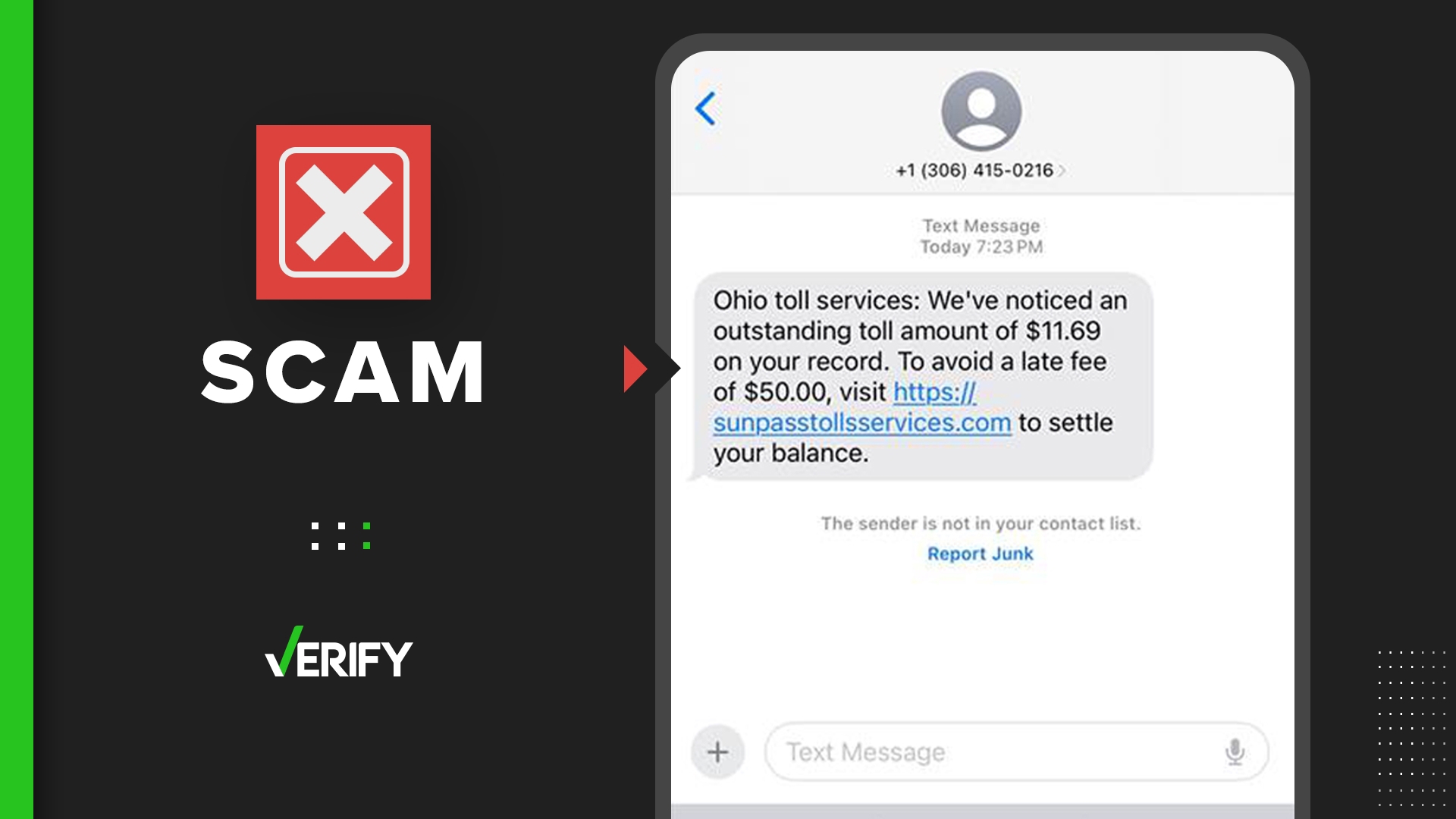ST. PETERSBURG, Fla. — Nearly two dozen websites impersonating the official SunPass website to steal payments from drivers have been identified and seized by Florida authorities.
The imposter sites are linked to a widespread text message scam VERIFY was first to report in April. Several VERIFY viewers contacted 10 Tampa Bay after receiving suspicious messages with fake toll bills. The messages included links to sites where payments could be submitted.
SunPass said it did not send the text messages and will never ask for immediate payments or urgent actions via text. The official website for SunPass is simply 'SunPass.com' while fake websites try to mimic the legitimate site by having URLs like sunpass-toll.com, sunpass-express.com and sunpass-florida.com.
Attorney General Ashley Moody announced in May her office had shut down 10 fraudulent sites.
But more VERIFY viewers have shared screenshots of similar messages they say they've recently received with links to sunpasstollsbill.com. Some demand payment for outstanding toll balances exceeding $75.
OUR SOURCES
WHAT WE FOUND
A spokesperson for the Office of Florida's Attorney General said it was aware of the scheme still going on, as its Cyber Fraud Enforcement Unit and the Florida Department of Law Enforcement identifies and seizes additional websites.
The state said it's taken down nine more imposter sites since May:
- sunpasstollsfees.com
- invoicesunpasstoll.com
- noticesunpasstoll.com
- noticesunpasstolls.com
- sunpasstollfees.com
- sunpasstollsbill.com
- sunpasstollsbilling.com
- billsunpasstoll.com
- paymentssunpass.com
This technique is called “smishing" — a combination of SMS and phishing. It involves fake texts that steal the victim’s personal information like their credit card information. Clicking on one of these links can also install malware on a device.
“We used to talk about phishing with email accounts, but now that Americans are using text messages more and more to communicate, the scammers know this, and this is how they’re pushing their scams,” Ashley Moody said in May.
Floridians are encouraged to report these websites to the Attorney General's office by calling 1-866-9NO-SCAM or online at MyFloridaLegal.com.
SunPass said it will only ever contact customers from the following:
- customerservice@sunpass.com
- noreply@sunpass.com
- Text: 786727
This isn't the first time scammers have posed as SunPass trying to cash in on customers' confusion. In 2019, fraudsters sent legitimate-looking emails to drivers threatening to issue a summons within 30 days to those who didn't pay up.
The FCC says that scammers impersonate all types of companies, including subscription services, package and mail carriers, banks, government agencies and service providers such as mobile carriers. The FTC’s advice is simple: Don’t click on links in unsolicited text messages.

